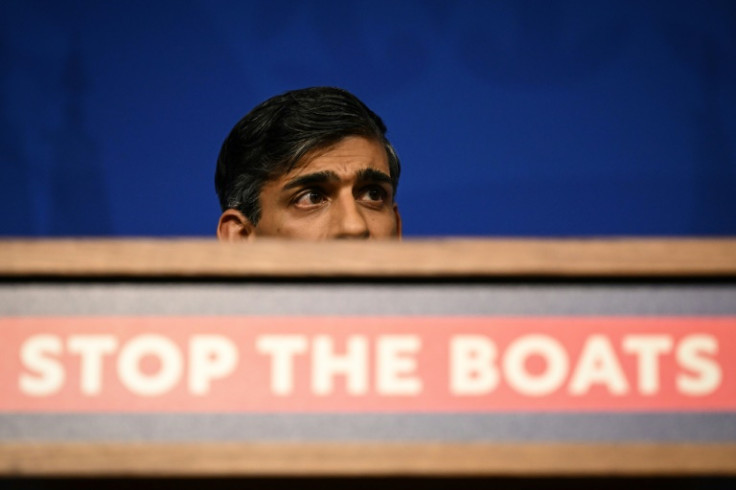No 'Firm Date' For Stopping The Boats, Admits British Prime Minister Rishi Sunak
Sunak's strategy to cut this figure is centred around sending migrants to Rwanda – but this plan was blocked by the Supreme Court last month.

British Prime Minister Rishi Sunak has admitted there is "not a firm date" for delivering on his pledge to stop illegal migration via small boat crossings.
Sunak promised to "stop the boats" when he became Prime Minister last year - one of his five key pledges.
However, The Office for National Statistics (ONS) said the number of people who arrived in Britain last year was a record 745,000 more than the number who left.
Sunak's strategy to cut this figure is centred around sending migrants to Rwanda - but this plan was blocked by the Supreme Court last month.
Since then, the government insisted it had been working on contingency measures and promised a revised treaty with Rwanda within days, along with emergency legislation in parliament.
After flying out to Rwanda, Home Secretary James Cleverly met his counterpart, Vincent Biruta, to sign an updated agreement and discuss key next steps in the so-called migration and economic development partnership.
Last week, Sunak quelled a Tory uprising over the terms of the new deal to win a House of Commons vote in its favour.
Yasmine Ahmed, the Director of Human Rights Watch UK, called the majority vote "a defeat for human decency and a hammer blow for the rule of law".
Today, Sunak refused to give an updated cost of his flagship Rwanda scheme to the Liason Committee, which has so far cost over £240m.
A substantial payment of £100 million was made to Rwanda in April of this year, the Home Office's top civil servant said in a letter to MPs.
The Prime Minister told the Liaison Committee that the government had "made progress", with the number of arrivals having fallen "by a third" this year.
He was pressed repeatedly by Dame Diana Johnson, the Labour chair of the Home Affairs Select Committee when he would deliver on the promise he made in January to "stop the boats".
Sunak replied: "There isn't a firm date on this because I have always been clear from the beginning..."
Told by Dame Diana that he had pledged to stop the crossings, he said: "And we will keep going until we do but this is not one of these things where there is a precise date estimate on it."
Sunak is facing one final grilling before Christmas, as he sits in front of the Liaison Committee of senior MPs.
The Committee quizzing the prime minister is a super-group made up of the chairs of all other committees – and its job is to scrutinise the government's work.
As well as pressing Sunak on migration, MPs asked him about the government's stance on the ongoing conflict in Gaza, in the context of the rising number of civilian deaths.
The prime minister replied that he thought it was a "genuinely extraordinary question".
"If Hamas is deliberately embedding itself inside civilian populations, they have to accept responsibility," Sunak said.
He added that Israel "should take every precaution to avoid harming civilians", but he says it's "very difficult" when Hamas puts civilians in "harm's way".
The United States vowed yesterday that it would continue to arm Israel in its campaign against Hamas, even as it called for more humanitarian aid to Palestinians in the devastated Gaza Strip.
Fighting raged on in the third month of the bloodiest-ever Gaza war, with the Hamas-run health ministry reporting another 110 people killed in strikes on the Jabalia camp near Gaza City.
The UN Security Council in New York was set to vote on another call for a ceasefire in the besieged territory after previous bids were vetoed by Israel's key ally the United States.
But the vote was postponed until today as negotiations continued over the text of the document, diplomatic sources at the United Nations told AFP.
© Copyright IBTimes 2024. All rights reserved.






